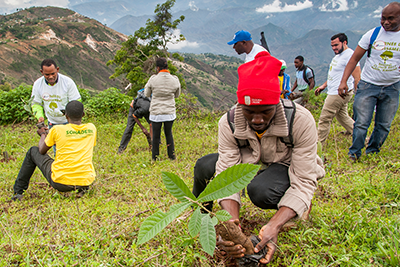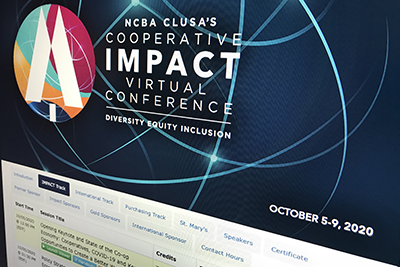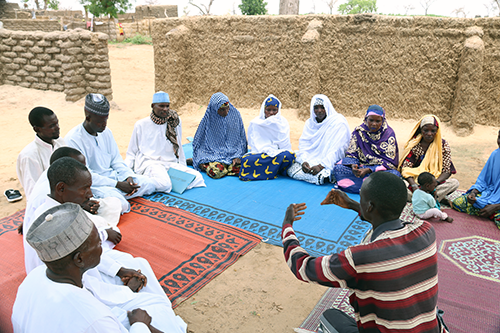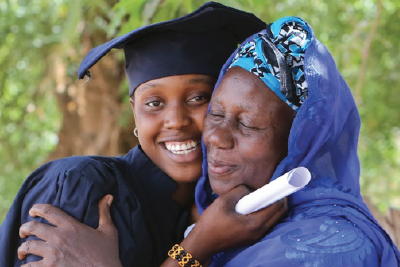The historic challenges of 2020 highlighted how co-ops can empower people to come together and meet their needs. In the past year, cooperators everywhere innovated solutions to shared crises, built more resilient communities and rooted vital infrastructure at the local level. 2020 also presented a generational opportunity to live up to our shared values of equality, equity and solidarity.
We can trace the roots of these shared values back to the Rochdale Pioneers and our current identity, values and principles to the International Cooperative Alliance (ICA)’s 1995 Statement on the Cooperative Identity. But our movement must be responsive to the economic and social realities we face. 2020 made clear how the cooperative community must take a clear-eyed look at how we can be better allies of Black, Indigenous and People of Color (BIPOC), and other marginalized groups. In 2019, we began working with the ICA on how best to express diversity, equity and inclusion (DEI) within the cooperative principles and values. This year, the global cooperative movement will reflect more deeply on our shared identity. Both the ICA’s World Cooperative Congress and NCBA CLUSA’s Co-op IMPACT Conference will meet under the theme of “Deepening Our Cooperative Identity.” These events and others will be an opportunity to understand how co-ops responded to COVID-19 and answered the universal call for racial and economic justice—and identify where more work is necessary.
One of the ways NCBA CLUSA lives out the cooperative values of equality, equity and solidarity is by building a more inclusive workplace. Acting on an assessment and recommendations from a third party in 2019, we created an internal DEI Committee tasked with creating a DEI roadmap for change for both leadership and staff. With a focus on people, systems and culture, the committee is working to address NCBA CLUSA’s organizational culture, create career pathing opportunities and diversify staffing and recruiting.
Moving forward, NCBA CLUSA will continue to build a culture that is consistent with our organizational mission and values. We’ll also keep working alongside our members, partners and policymakers to tackle the critical challenges we all face. It’s time to close the inequality gap, dismantle systemic racism and build resilience in the face of climate change. By deepening our shared cooperative identity, we can build more inclusive co-ops, more just and equitable communities and a better future for everyone—together.































